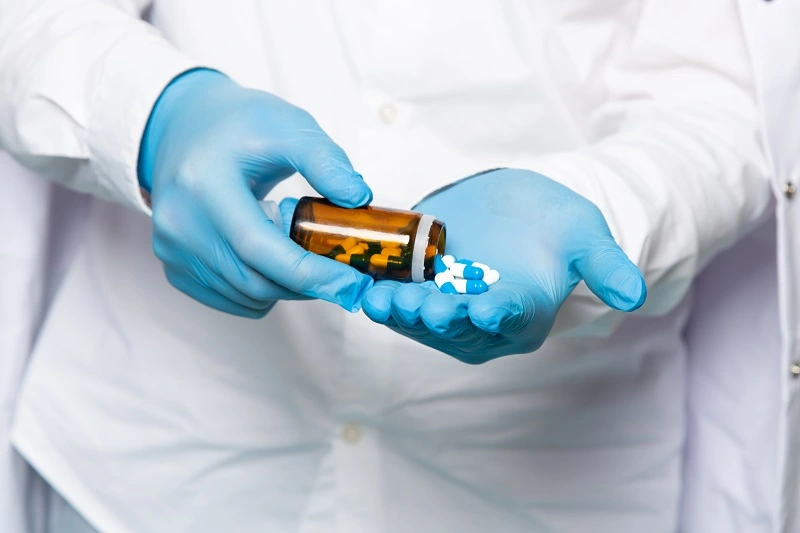Introduction:
When we think of antibiotics, we often associate them with fighting off infections and illnesses. However, in the world of dentistry, antibiotics play a crucial but sometimes misunderstood role. In this blog, we will delve into the use and misuse of antibiotics in dentistry and explore their potential adverse effects.
Antibiotics has been used for patients with life-threatening infections, being nonetheless free from potential adverse effects, and the risk of intestinal dysbiosis, antimicrobial resistance, and the resulting consequences for the patient’s health and the public purse.
1. Antibiotics in Dentistry: A Necessity
- Dental Infections: Antibiotics are commonly prescribed to treat dental infections like abscesses, gum disease, or tooth abscesses. These infections can cause severe pain and discomfort.
- Prevention of Infection: Dentists may prescribe antibiotics before certain dental procedures to prevent infection, especially in patients with underlying health conditions.
2. Common Antibiotics Used in Dentistry
- Amoxicillin: This widely-used antibiotic is often prescribed for dental infections due to its effectiveness against various oral bacteria.
- Clindamycin: When patients are allergic to penicillin-based antibiotics, clindamycin is a common alternative.
3. Misuse of Antibiotics
- Overprescription: Sometimes, dentists prescribe antibiotics unnecessarily. This can contribute to antibiotic resistance, making these drugs less effective over time.
- Self-Medication: Patients may self-prescribe or use leftover antibiotics, which can lead to incomplete treatment and antibiotic resistance.
- Antibiotic overuse is when antibiotics are used when they’re not needed. Antibiotics are one of the great advances in medicine. But overprescribing them has led to resistant bacteria (bacteria that are harder to treat).
4. Potential Adverse Effects of Antibiotics
- Antibiotic Resistance: Overuse and misuse of antibiotics can lead to bacterial resistance, making infections harder to treat with standard antibiotics.
- Allergic Reactions: Some patients may experience allergic reactions, ranging from mild rashes to severe anaphylaxis.
- Gastrointestinal Issues: Antibiotics can disrupt the balance of gut bacteria, leading to diarrhea and other gastrointestinal problems.
- Yeast Infections: The use of antibiotics can increase the risk of yeast infections, such as oral thrush.
5. Importance of Proper Antibiotic Use
- Follow Your Dentist’s Instructions: Always take antibiotics as prescribed by your dentist, completing the full course even if symptoms improve.
- Don’t Share Antibiotics: Antibiotics are not one-size-fits-all. Never share your antibiotics with others, as their condition may require a different medication.
6. Alternatives to Antibiotics
- Pain Management: For dental pain, pain relievers like ibuprofen or acetaminophen can be effective without the risk of antibiotic resistance.
- Oral Hygiene: Maintaining good oral hygiene through regular brushing, flossing, and dental check-ups can prevent many dental infections.
7. The Role of Dentists in Antibiotic Stewardship
- Education: Dentists play a vital role in educating patients about proper antibiotic use and the consequences of misuse.
- Selectivity: Dentists should carefully select antibiotics based on the specific infection and the patient’s medical history.
Conclusion
Antibiotics are valuable tools in dentistry, helping to treat and prevent infections. However, their misuse can have serious consequences, including antibiotic resistance and adverse effects. It’s crucial for both dentists and patients to exercise caution and responsibility when it comes to antibiotic use. By following prescribed guidelines and promoting antibiotic stewardship, we can ensure that antibiotics remain effective tools in maintaining oral health.
Retrieved evidence revealed that antibiotics are frequently overused and misused in dental practice, dental patients frequently do not adhere to prescriptions, and antimicrobial resistance in dentistry is a still rising phenomenon also secondary to improper oral antiseptics use.
Our Expert Doctor

Dr. Deena Jamal Harazeen
Experience : 8+ Years
Primary Speciality : General Dentist
Dr. Deena Jamal Harazeen is a highly skilled general dentist at American Medical Centre with 8+ years of experience in General and cosmetic dentistry.
She completed her Bachelors in Dentistry with Honours List and then persuade Diploma in oral Implantology and clinical training, Diploma in Porcelain-veneer course, ADAMS Certification & Clear Smile Certification. Her experience in field of Aesthetic and Cosmetic Dentistry had made her a renowned name in the field of cosmetic dentistry. She is an expert in root canal therapy, retreatment endodontics, painless dentistry, teeth bleaching, and Veneers.
You may like to read: Why Teeth Whitening is important. Benefits of Teeth Whitening. Read Now.


